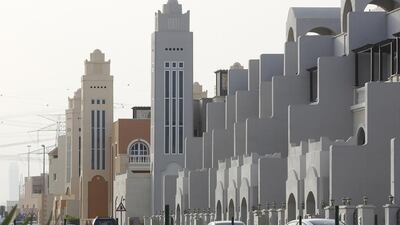Interest in Dubai property is soaring among potential buyers from China, according to the Chinese property portal Juwai.com.
The firm, which specialises in overseas property searches for Chinese nationals, said that investor interest in Dubai increased by 1,200 per cent year-on-year in August.
The company said the increase in its Purchasing Intent Index compares extremely favourably with other world markets. For instance, in the five territories that are currently most popular with Chinese buyers – the US, Australia, UK, Canada and New Zealand – the index rose by just 30 per cent.
Juwai.com said that it is becoming “increasingly common” for Chinese buyers to purchase residential property in Dubai, whereas a year ago it was rare.
Chinese institutions are also beginning to invest, with Skai Holdings recently gaining a US$300 million syndicated loan from a mix of Chinese and local banks to fund construction of its Palm Viceroy and Viceroy Dubai Jumeirah Village hotel and serviced apartment projects.
Despite Dubai’s own market fluctuations, it is still considered a relatively safe destination in which to invest, the report said.
“Chinese buyers of Dubai apartments and villas are generally purchasing for investment or for their own part-time occupancy, said Andrew Taylor, co-chief executive of Juwai.com.
“One thing Dubai has going for it is that Chinese buyers appreciate high quality, new construction, and the emirate has that in abundance.”
Buyers are typically wealthy individuals who “want to internationalise some share of their assets”, he added.
“They already own multiple properties in China typically, and are big believers in real estate as an investment category,” said Mr Taylor. “The absolute numbers are still relatively small compared to larger and more established markets like the US or Australia, but the potential impact locally is still significant, given that just a couple of hundred motivated buyers can push up transaction levels and prices,” he added.
Earlier this month, CBRE published research which showed that Chinese investment in overseas property soared in the first half of 2015 – even before the recent devaluation of the yuan and the dramatic downturn in Chinese stock markets.
During the first six months, spending on overseas property by Chinese investors grew by 46 per cent year-on-year to $6.6 billion. CBRE’s China executive director and head of research, Frank Chen, argued that the rise of outbound property investment is likely to continue as a result of the recent yuan devaluation and the fall in equities
“Investors might become more active in looking for overseas deals to diversify their assets,” he said.
He also said that investors are looking beyond initial “gateway” markets such as London and New York for other cities and markets that can offer better returns.
“Going forward, we believe that Chinese investors will increasingly expand their investment scope to include a wider range of geographies and property types.”
This view was reinforced by Juwai.com’s report, which said that the average price of property bought by Chinese investors worldwide in August fell by 13.6 per cent year-on-year to an average of $1.35m.
Mr Taylor said that another driver of Chinese interest in Dubai is the increasing number of Chinese studying in the country, with the number of students from the country up by 170 per cent over the past five years.
“We see this in markets around the world,” he said.
“Wherever Chinese students go in large numbers, their real estate transactions also climb upwards.”
mfahy@thenational.ae


